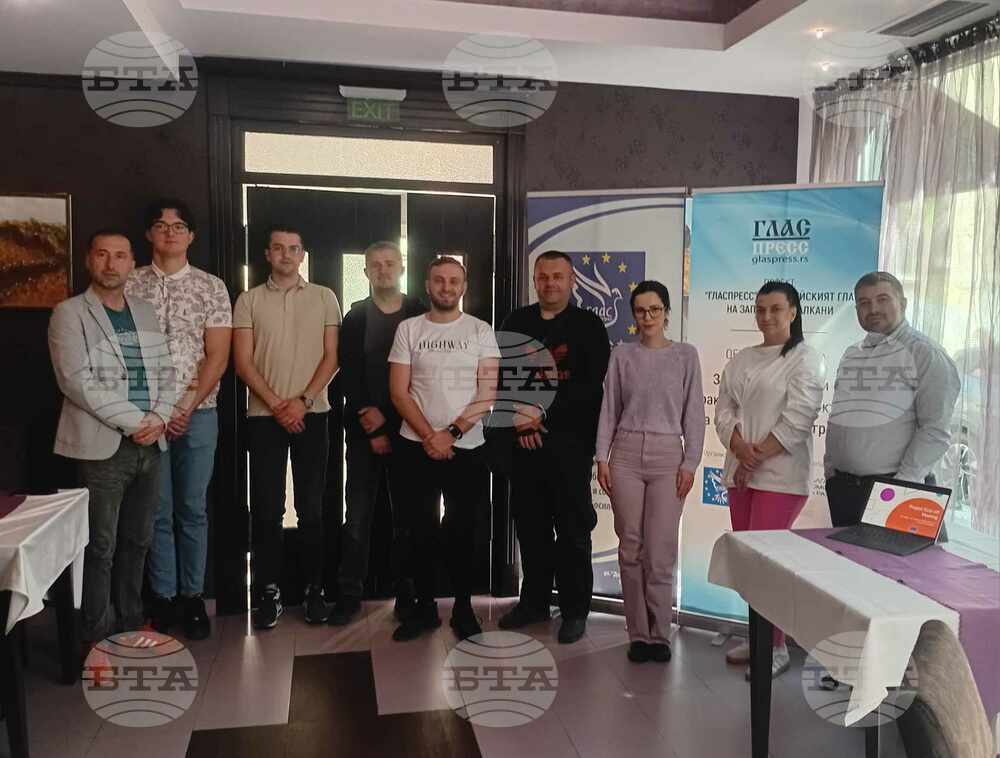site.btaGLAS Association from Bosilegrad Discusses EU Integration at Seminar in Sofia


In the context of the current public attitudes and geopolitical challenges, the Bosilegrad-based GLAS Association held a seminar in Sofia on Wednesday on Bulgaria's experience from the EU integration process and the country's role in the European Union. The event was organized as a continuation of the previous initiatives within the framework of the GLASPRESS - European Voice of the Western Balkans project, funded under the Bulgarian Development Aid. The seminar aimed at deepening the discussion on the priorities, values and realities of EU integration.
The discussions highlighted that despite the existing uncertainties both at the international and domestic political level, Bulgarian citizens continue to support the European idea. Participants in the seminar stressed the importance of EU membership for the country's economic development, as well as the opportunities provided by the free movement of people, goods and ideas. The opening to education and labour markets, as well as improved infrastructure through EU funding, are seen as real benefits of integration.
Alongside the positive dimensions of the integration process, the discussions highlighted a number of significant challenges. The outflow of young and skilled workers to other Member States emerged as a leading problem, undermining the sustainability of the local economy and exacerbating demographic and social inequalities. Further attention was paid to the inefficient absorption of EU resources, often linked to corruption practices and administrative inactivity.
In the final part of the seminar, Krasimir Petkov presented the EU Journeys - Uniting Stories of European Integration project, an initiative of an international consortium dedicated to the telling and preservation of personal stories, events and the impact of EU integration on the lives of citizens. The project aims to promote intergenerational dialogue, European identity and understanding of the achievements and challenges of the integration process through innovative activities, such as video documentary screenings, exhibitions with AI-generated content, and the collection of testimonies and narratives in a special publication. EU Journeys is one of the few projects funded under the CERV (Citizens, Equality, Rights and Values) Programme through the European Education and Culture Executive Agency (EACEA), as part of REM - European Memory. The project involves organisations from five countries: Bulgaria (Expert Pool Association - coordinator), Germany (M2C Institut für angewandte Medienforschung GmbH), Italy (EProjectConsult), Estonia (Peipsi Cooperation Center) and Greece (Evropaiki Politeia). In the coming months, pilot project activities are expected to be implemented in the partner countries, targeting a wide range of citizens, students, and representatives of the civil sector.
/RY/
news.modal.header
news.modal.text